Jammu & Kashmir and Ladakh High Court
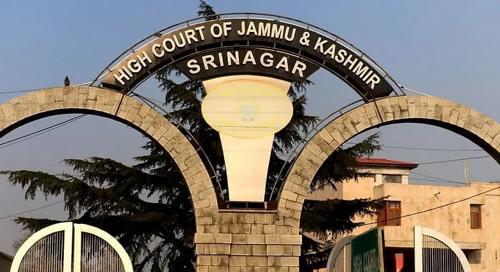
J&K & Ladakh High Court Grants Bail to Shabnam Akhter in UAPA Case
In a significant ruling, the High Court of Jammu & Kashmir and Ladakh granted bail to 21-year-old Shabnam Akhter, arrested in 2022 under the Unlawful Activities (Prevention) Act after police recovered cash allegedly linked to terror funding.
A Division Bench of Sanjeev Kumar and Sanjay Parihar held that merely keeping cash handed over by her husband, accused of links with Lashkar-e-Taiba, did not prima facie establish intent to fund terrorism.
Noting her over three-year incarceration and lack of direct evidence, the Court granted bail with conditions, leaving intent to be tested at trial.
[Shabnam Akhter v. UT Of J&K]
VishwaBookmark
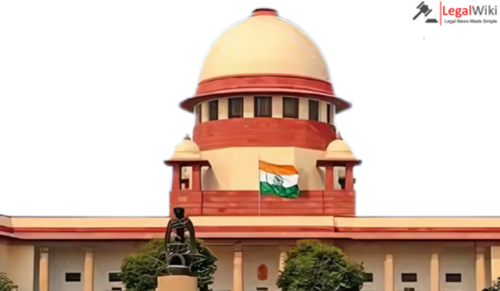
Supreme Court Dismisses Appeals in Actress Prathyusha Death Case, Upholds Abetment Conviction
The Supreme Court of India has dismissed appeals in the 23-year-old death case of Telugu/Tamil actress Prathyusha, ruling out allegations of murder and rape.
A Bench of Justices Rajesh Bindal and Manmohan held that consistent eyewitness accounts and medical evidence established death by poisoning. The Court noted that Prathyusha and her boyfriend, Gudipalli Siddhartha Reddy, had consumed poison amid opposition to their relationship, though Reddy survived.
Rejecting the defence of accidental intake, the Court found Reddy guilty of abetment to suicide for procuring the poison and directed him to surrender within four weeks.
It also termed the postmortem conducted by Dr. Muni Swamy unprofessional.
[Gudipalli Siddharta Reddy v. State (C.B.I.)]
VishwaBookmark
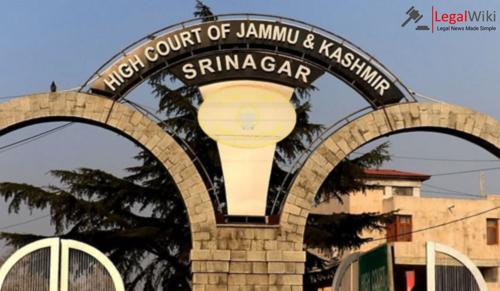
J&K&L High Court Says Consent Given by Counsel Binds Parties and Bars Later Challenge
The High Court of Jammu & Kashmir and Ladakh held that statements and consent given by advocates, acting as authorised agents, are binding on the parties and operate as estoppel.
The Court dismissed a writ petition challenging a consent-based remand order passed by the Revisional Authority in a land partition dispute under the Jammu and Kashmir Land Revenue Act.
It observed that once an order is passed with counsel’s consent, it cannot be questioned later unless there is fraud, coercion, or lack of jurisdiction.
Finding no such grounds, the Court vacated the interim stay and allowed proceedings to continue.
[Sikander Sharma v. Addl Commissioner Jammu & Ors.]
MahiraBookmark
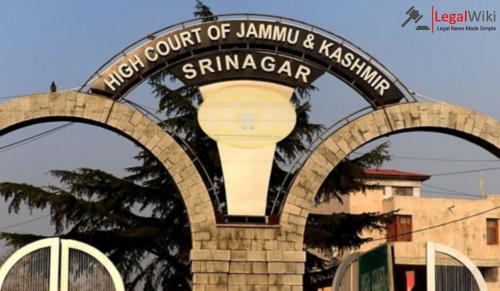
J&K&L High Court Protects Married Couple, Says Blocking Personal Choice Violates Dignity
The High Court of Jammu & Kashmir and Ladakh granted protection to a married couple who alleged threats from relatives after marrying against their families’ wishes.
The Court observed that when two adults choose each other as life partners, their decision reflects their constitutional rights under Articles 19 and 21.
It said that obstructing personal choice strikes at the core of dignity and that consent of family, clan, or community is not required once adults marry of their free will.
Holding that the State is obligated to protect life and liberty, the Court directed authorities to ensure the couple’s safety.
MahiraBookmark
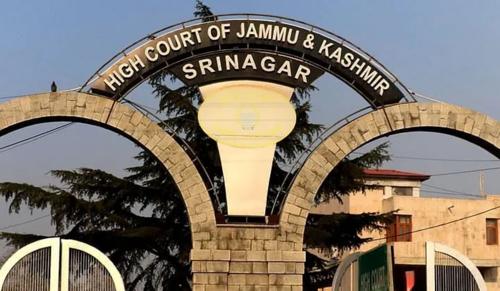
Public Prosecutor Can’t Independently Seek Police Remand: J&K High Court
The Jammu & Kashmir and Ladakh High Court held that a Public Prosecutor has no independent authority to seek police custody of an accused unless such a request originates from the investigating agency.
Justice Sanjay Parihar observed that under Section 167 CrPC, police remand can be granted only when the police themselves seek custody for further investigation.
Since the charge-sheet had already been filed and no supplementary investigation or custody request was made by the police, the remand plea was rightly rejected.
The Court dismissed the State’s revision, holding that the refusal order merged with the final acquittal judgment.
[State of J&K v. Dhanwanter Singh]
MananBookmark

Failure of Public Education System Led to Mushrooming of Private Schools: J&K High Court
The Jammu & Kashmir and Ladakh High Court has observed that the rapid growth of private schools is largely due to the failure of the public education system to meet citizens’ expectations.
The Court held that private schools have emerged not by choice, but due to governmental inability to deliver quality public education.
While affirming that private schools are entitled to earn reasonable profits under Article 19(1)(g), the Court cautioned against commercialization and profiteering. It upheld the fee regulation framework but stressed that excessive interference should be avoided.
The Court also directed that fee-fixing committees must be headed by retired High Court judges.
[New Convent High School, Gogji Bagh Srinagar v. UOI]
MananBookmark

Deliberate Signature Mismatch to Defeat Cheque Payment Attracts S.138 NI Act: J&K & Ladakh High Court
The Jammu & Kashmir and Ladakh High Court held that deliberately appending a signature on a cheque which does not tally with the specimen signature available with the bank, with the intent to prevent encashment, attracts liability under Section 138 of the Negotiable Instruments Act, 1881.
The Court observed that the grounds of dishonour under Section 138 are not to be interpreted narrowly and include deliberate acts or omissions by the drawer aimed at frustrating payment.
Relying on Supreme Court precedents, the Court clarified that intentional signature mismatch or unauthenticated alterations are conscious steps to defeat honouring of the cheque and cannot shield the drawer from prosecution.
[Abdul Hamid Wani v. Abdul Hamid Lone]
MananBookmark

No Retrospective Regularisation Under J&K Civil Services Act: High Court
The Jammu & Kashmir and Ladakh High Court held that completion of the qualifying service period does not confer a right to retrospective regularisation under the J&K Civil Services (Special Provisions) Act, 2010.
The Court observed that statutory regularisation under the Act operates only prospectively from the date of sanction, irrespective of when the employee completes seven years of service.
It noted that the petitioners, engaged without a formal selection process, could not claim parity with employees appointed under contractual rules.
Dismissing the writ petition, the Court clarified that continuity of service alone cannot create a vested right to retrospective benefits.
[Ghulam Rasool Bhat v. UT Of J&K]
MananBookmark

J&K&L High Court Issues Notice on ₹5 Crore Compensation Plea Over Alleged Illegal Demolition
The Jammu and Kashmir and Ladakh High Court has issued notice to the Union Territory administration on a plea seeking Rs 5 crore compensation for the alleged illegal demolition of a shop structure in Udhampur district.
Justice Rahul Bharti directed that the status quo be maintained at the site and ordered that no construction or reconstruction be carried out until further orders.
The petition was filed by Farooq Ahmad Wani, who claimed the shop was erected pursuant to an agreement executed in 2018 and was demolished without following due process of law. Alleging substantial financial loss, Wani sought compensation for the destruction of his investment.
The court listed the matter for further hearing on January 31, 2026.
MananBookmark

J&K HC Acquits Four in a Fatal Free-Fight, Holds That Common Intent Must Be Individually Proven
The Jammu & Kashmir High Court allowed a Criminal Appeal, setting aside the conviction and sentence of four accused from a fatal free-fight between rival village groups that began from a land dispute and escalated into mutual stone-pelting.
The Court observed that the prosecution did not prove common intention or individual role beyond a reasonable doubt.
It also noted contradictions on time, place, and weapon, and held there was no clear nexus between the recovered weapon and the fatal injury to the deceased.
The State appeal was dismissed, and the four appellants stand acquitted of all charges.
[State of J & K v. Nazir Ahmad Bhat & Ors.]
Thanush SBookmark

Jammu & Kashmir High Court Directs Police Protection for Woman Fearing Forcible Marriage
The Jammu & Kashmir and Ladakh High Court directed the police to ensure protection for a woman who expressed apprehension of harm due to an alleged attempt to forcibly marry her.
The Court noted that the woman and her family had raised concerns about threats from the proposed groom’s relatives. It ordered the Senior Superintendent of Police, Poonch, and the Station House Officer, Mendhar, to ensure that she is not subjected to any harm.
The Court further said that if the woman faces any threats or harassment, the police must promptly inquire into the complaint and provide necessary security.
The petition was initially filed in 2023 through her elder sister when she was a minor.
MahiraBookmark

Right To Speedy Trial Extends To Appeals: J&K–Ladakh High Court Closes 46-Year-Old Criminal Case
The Jammu & Kashmir and Ladakh High Court has closed a 46-year-old criminal case, holding that the constitutional right to a speedy trial extends even to appellate proceedings.
The Court observed that keeping a criminal appeal pending for decades defeats the purpose of the justice system and causes serious prejudice to the accused. It noted that enforcing a substantive sentence after such an extraordinary delay would serve no meaningful purpose.
Emphasising that sentencing should aim at reform rather than prolonged punishment, the Court held that the inordinate delay itself justified closure of the proceedings.
Accordingly, it brought the long-pending criminal proceedings to an end on the ground of inordinate delay.
[Shameema Begum v. PS Bijhama]
MahiraBookmark

Magistrate Cannot Enforce Settlement After Compromise in Cheque Bounce Cases: J&K&L High Court
The Jammu & Kashmir and Ladakh High Court has held that once a lawful compromise is recorded in a Section 138 NI Act case, the Magistrate must dispose of the complaint in terms of the settlement and cannot act as an executing court.
Justice Sanjay Dhar clarified that courts cannot monitor or enforce compliance with a compromise by issuing coercive directions or warrants.
Any breach of the settlement must be pursued only through appropriate execution proceedings under the CrPC.
Setting aside the Magistrate’s order issuing warrants, the Court directed strict adherence to the correct legal procedure.
[Sajad Ahmad Malik v. Gulzar Ahmad Wani]
2 months ago
MananBookmark
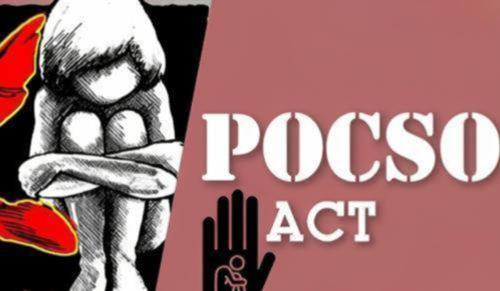
J&K&L High Court Grants Bail to 75-Year-Old Grandfather in POCSO Case
The Jammu & Kashmir and Ladakh High Court granted bail to a 75-year-old man accused by his granddaughter under the POCSO Act, holding that his involvement was prima facie “highly doubtful.”
The Court noted that the prosecutrix retracted her allegations during trial, DNA evidence did not implicate the accused, and the alleged video was unreliable.
Justice Sanjay Dhar held that POCSO presumptions are not absolute and bail cannot be denied once foundational facts collapse.
[Ghulam Nabi Ganai v. UT Of J&K]
2 months ago
MananBookmark

J&K&L High Court Dismisses Mehbooba Mufti’s PIL on Repatriation of Undertrial Prisoners
The Jammu & Kashmir and Ladakh High Court has dismissed a PIL filed by Mehbooba Mufti seeking repatriation of undertrial prisoners lodged outside the UT, holding the plea to be politically motivated.
The Court observed that PIL jurisdiction cannot be invoked to gain political mileage or as a forum for electoral positioning.
It noted that the petition lacked specific facts, identification of affected prisoners, or a challenge to any particular transfer orders.
Holding that Mufti lacked locus standi, the Bench clarified that decisions on transfer of undertrials are case-specific and cannot be addressed through a blanket direction.
[Mehbooba Mufti v. UOI]
MananBookmark
